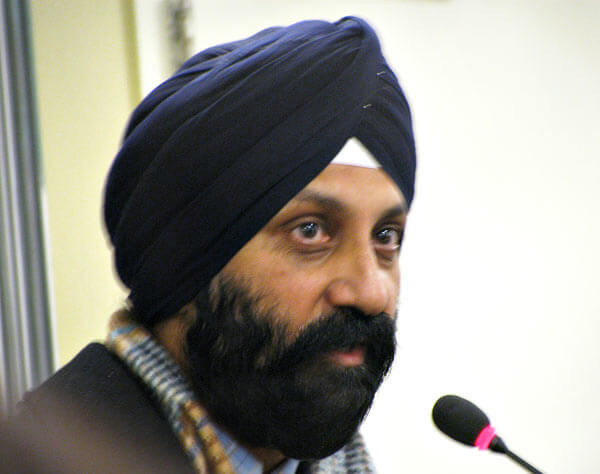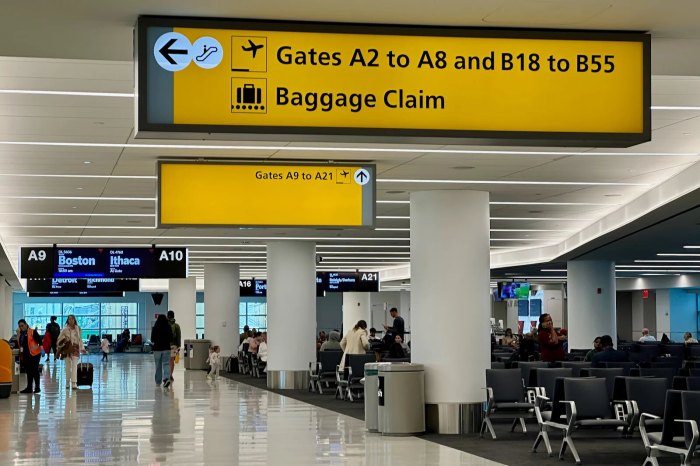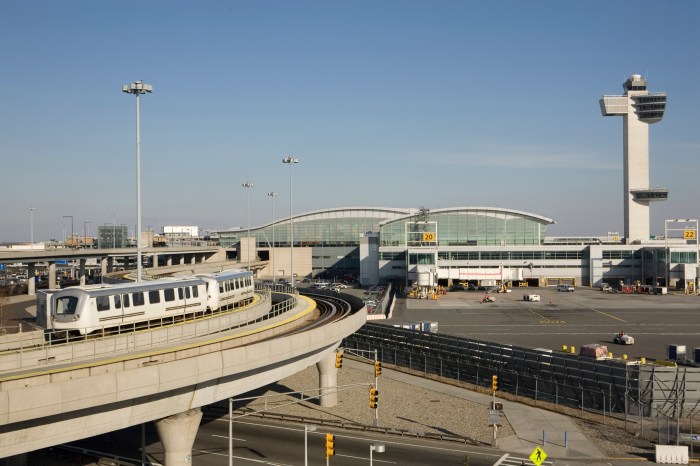By Philip Newman
Laid-off transit workers harangued the MTA last week, demanding that restoration of their jobs be paid for by dipping into a fund intended for retirees’ health benefits.
Metropolitan Transportation Authority Chairman Joseph Lhota said the idea of spending $470 million intended for retirees’ retirement health fund to rehire nearly 300 transit workers laid off in 2010 was not sound.
He said that, in any case, the MTA’s financial plight was precarious.
“I respectfully disagree,” Lhota told a news conference following the MTA’s monthly board meeting, referring to the transit workers’ demand.
The workers, who appeared during the public speakers period prior to the MTA board meeting, were laid off in 2010 as part of massive cutbacks, including the shutdown of two subway lines and curtailment of many bus routes.
Some workers said they can no longer pay the rent, with a number of them saying they cannot find a job. Others characterized the MTA as a tool of Wall Street.
Narinder Sikh, of Richmond Hill, a subway station agent, said he had just bought a house when he was laid off.
The MTA contract with the transit workers union expired Jan. 15, and Lhota said negotiations have been conducted in sessions without serious discord.
“The employees are not conducting any slowdowns or job actions,” Lhota said. “I have never used the word that starts with an S,” Lhota said.
He was presumably referring to “strike.”
Lhota has said the financially beleaguered MTA cannot afford to provide pay raises, while the transit workers say they will not settle without one.
At a news conference following the MTA board meeting, Lhota was asked whether the time will ever come when the frequent service disruptions for track and other system repairs and maintenance are a thing of the past.
“When you look at how old the system is, I don’t think I can tell you that there is ever going to be a time when we will not be in need of repairs and renovation and rehabilitation of our system ,“ Lhota said.
In other transit news:
• New York City Transit President Tom Prendergast said the NYCTA is studying whether to increase a pilot program of removing trash cans from subway stations, which has reduced the MTA’s disposal expenses. Prendergast said his agency had also talked about making eating on trains illegal, but he said it is all just in the discussion stage so far.
• The numbers of cars and trucks using MTA bridges and tunnels have fallen since the end of 2007. The agency said revenues still rose because of an increase in tolls. The MTA reported 776,632 crossings last year, down 7 percent from the 2007 total of 834,000.
• The MTA reported that bus ridership is down since 2010, when numerous bus lines were cut. Local bus rider totals fell 4 percent on weekdays in 20ll and express bus patron totals fell by 2 percent.
Reach contributing writer Philip Newman by e-mail at timesledgernews@cnglocal.com or phone at 718-260-4536.




































